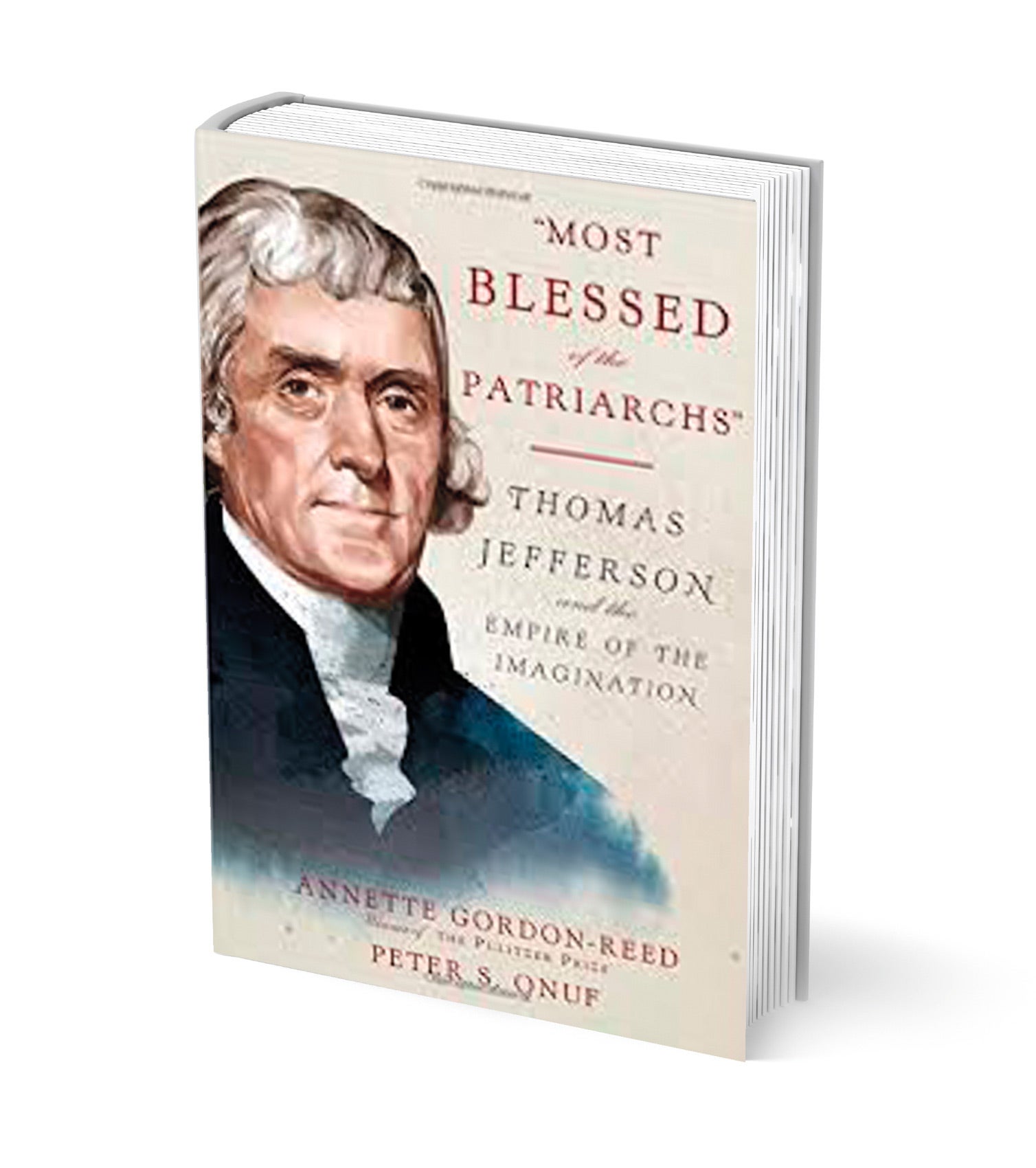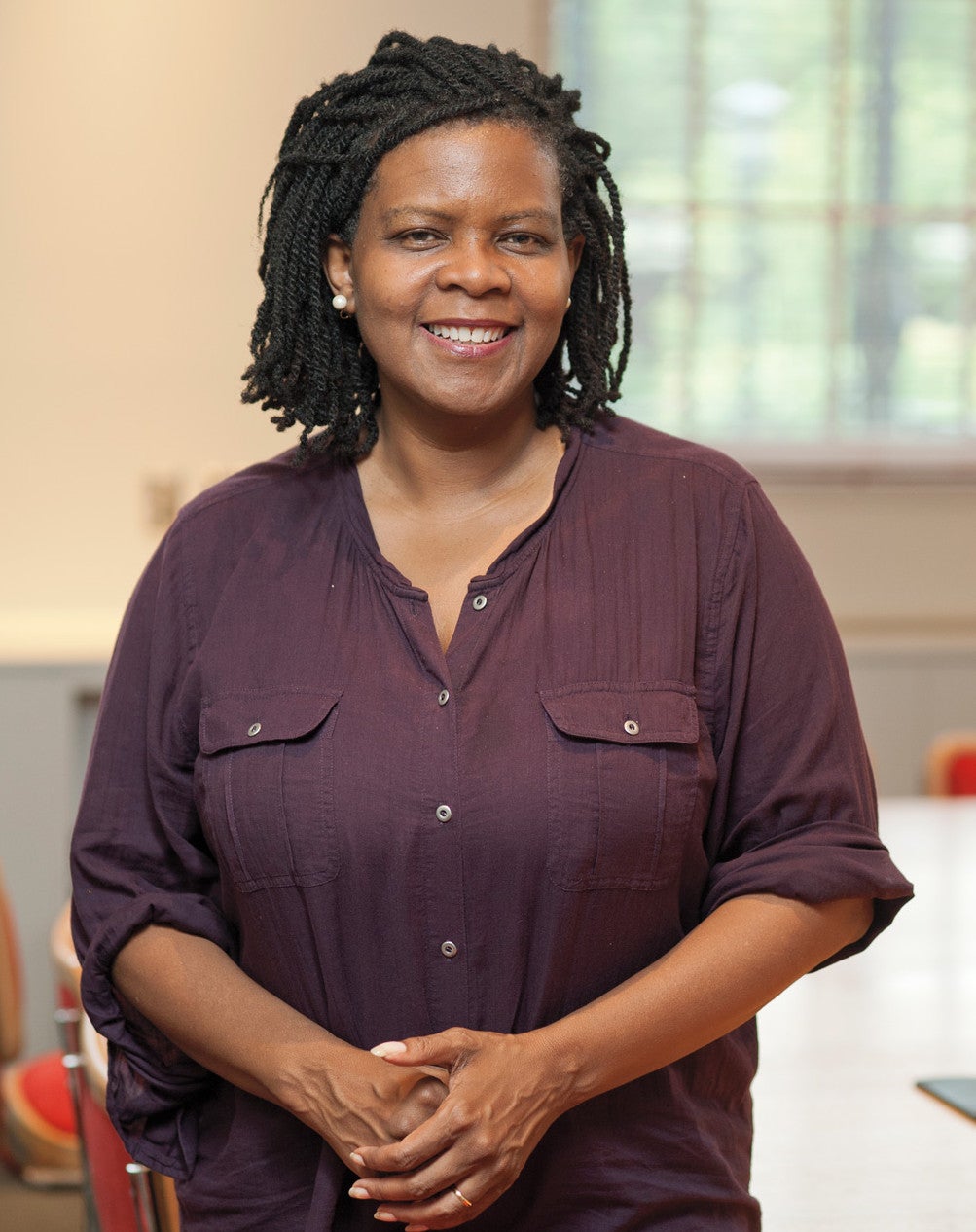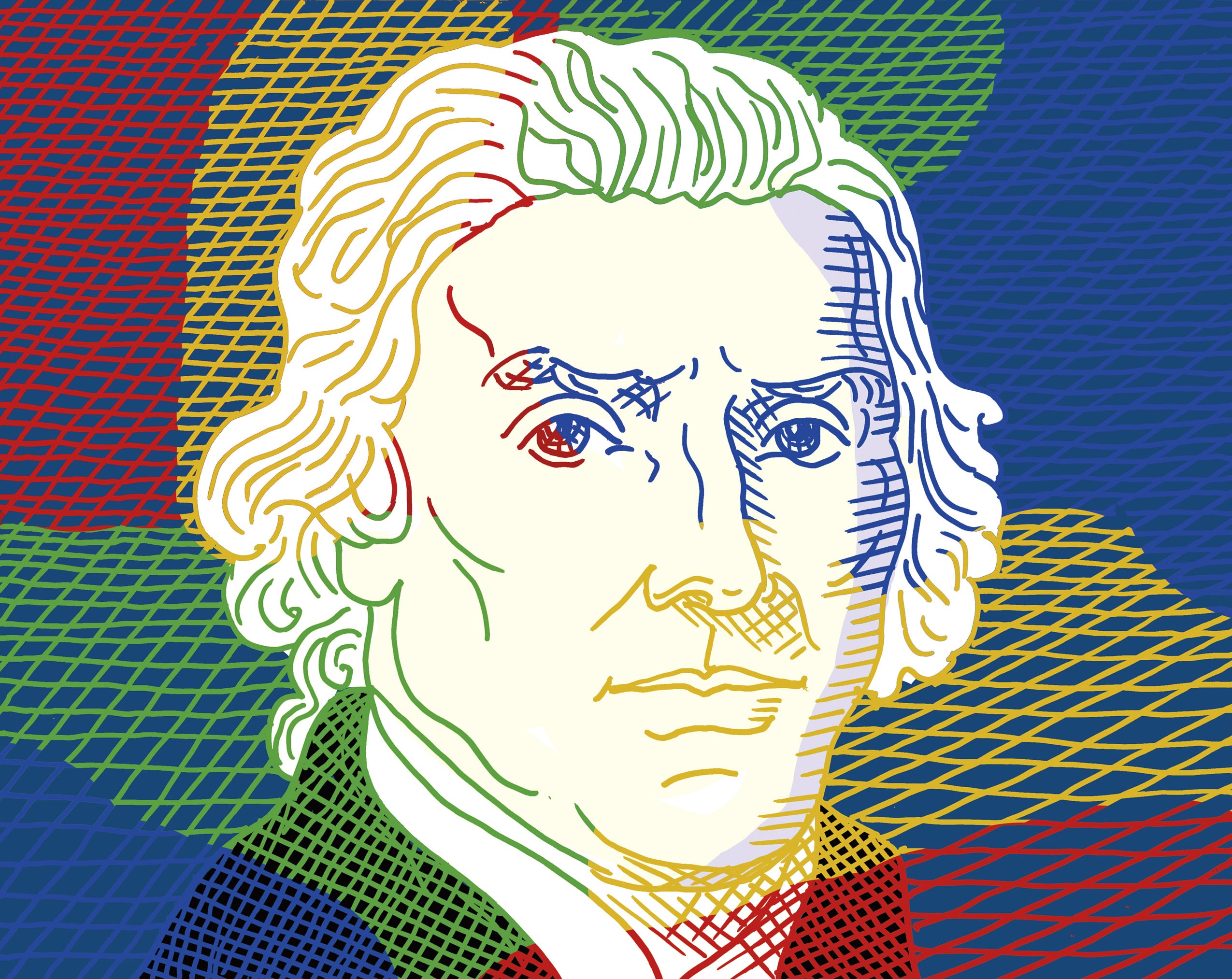Winner of the Pulitzer Prize in History for her book “The Hemingses of Monticello: An American Family,” Annette Gordon-Reed ’84 first read a biography of Thomas Jefferson as a child—and hasn’t stopped learning and writing about him. The Harvard Law professor, who is also on the faculty at the university and the Radcliffe Institute, spoke to the Bulletin about her latest book, “Most Blessed of the Patriarchs: Thomas Jefferson and the Empire of the Imagination” (W. W. Norton, 2016), co-written with University of Virginia historian Peter S. Onuf. Gordon-Reed discussed her own fascination with and (measured) admiration for the third U.S. president—and the significance of teaching history at the law school.
Gordon-Reed says she sees Jefferson’s life and his stance toward slavery as an opportunity to “interrogate ourselves—to think about things that we know are problems but we don’t do anything about.”
Why have you devoted so much of your work to Jefferson?
He had his hands in so many aspects of American life. If you’re interested in politics, if you’re interested in the question of race in America, if you’re interested in gender, you can talk about that through him. So there are just so many things that he opens up. And I was interested in that era, thinking about people who decided to found a country and how that came about. There’s not any other member of the founding generation who has so many different sides to him.

“Although it is impossible to know what he would have done had he lived a few more years, Jefferson—even at his most dispirited moments—never made the pivot to the nascent proslavery ideology that would have rationalized his life in an instant; he would be deemed understandable and consistent had he been a slaveholder who proclaimed that slavery was a moral institution. Instead, he lived a paradox, pushing the resolution of the problem off into a future in which the members of his community (whites, that is) became ready for a ‘revolution in public opinion’ … ”
From “Most Blessed of the Patriarchs”
Your latest book is about how Jefferson saw himself. What did you do to try to get inside his mind?
One of the things we had to do was step outside the construction of Jefferson that has been [created] by historians over the years. There’s sort of a template for how you talk about Jefferson—and it’s the paradox. He says this and he does another thing. As we say in the preface, where it is at all reasonable, we take him at his word. We don’t start from the proposition that this is a lying hypocrite who is trying to snow us. What if he actually did believe that the enlightenment meant that things were going to get better and better? Now, we laugh at that because most of us don’t think that’s true, but what if he really did believe that, and, if someone had that sense, how would they solve problems? We tried to take him seriously. I anticipate there’s going to be criticism about that because there’s such a paint-by-numbers way of seeing Jefferson.
People do always focus on the slavery issue. How did Jefferson reconcile his anti-slavery views with the fact that he owned slaves?

I think he rationalized it the way human beings rationalize things when they have an intellectual understanding about something and have an emotional attachment to the thing they were supposed to get rid of. What’s interesting about this is that his life is a way to interrogate ourselves—to think about things that we know are problems but we don’t do anything about. Now slavery looms large for us because it’s so outside our understanding of how people could live. But he was born into this. It’s not an excuse, but it is a way to say that he’s different than we are. So the question becomes: How did someone who came up in that system make the decision that it’s wrong? Most people didn’t. Jefferson is along a continuum of someone who grows up in that society, understands that slavery is wrong, thinks of it as one of those things that the progressive enlightenment is going to get rid of, is naive about that—but that’s what he thinks.
What was Jefferson’s vision of an ideal republic?
The ideal republic would be a place where the people would be in charge. “The people” meaning white people, clearly. He would think of men representing their wives and children participating in democracy. He really liked New England and the town meeting, so he thought there would be men involved in local government and from there state government and then out to national government. The idea is that everyone should like politics as much as he did. He thought that once we got rid of the monarchy and set up a republican society, citizens would naturally want to participate.
You wrote that Jefferson wanted to be loved or at least liked. Do you like him?
Sometimes yes and sometimes no. Overall I think I do. One saving grace for him is that for all of his foibles, I don’t sense malice. Some people you read about and you think, This is a really nasty person. He could have been a clueless person or somebody who was so myopic or had such tunnel vision that he didn’t recognize what’s going on. But I don’t think he was a mean and nasty person. I sense a deeply sensitive person who was very passionate about things but was closed off in a way. In general, I certainly love him as a topic. There’s always something there. And this could be hubris, but I think I get him. I do think I understand him.
As a historian who is African-American, do you feel as if you bring a different perspective to Jefferson?
I think I do pay more attention to how he was dealing with enslaved people. It would never occur to me not to notice that. The bigger thing is I have the sense that many people who write about Jefferson identify with him. That would be a bigger field for me to cross. I don’t have the stake in him that I think some people who write about him do. Another question is, How am I seen? And I think there’s some difficulty in people accepting that I can actually be a Jefferson scholar.
You teach American legal history at HLS and are an advising faculty member for the HLS Program of Study in Law and History. How does it benefit law students to learn about history?
I think it provides the context for how laws are made. Law and society go together. You can’t just start talking about doctrine without thinking about the world in which these doctrines were created. I think it gives you a richer and fuller understanding of the way law operates.
